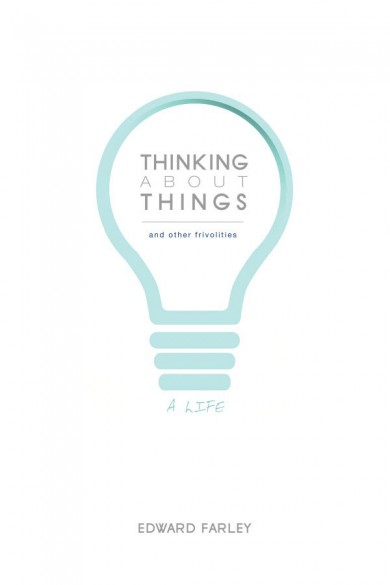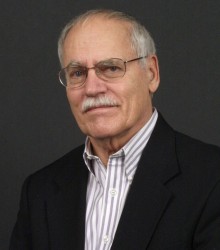 A retired Vanderbilt Divinity professor who was a prolific writer on theological education during the 1980s has written a memoir that he hopes speaks to the next generation of theologians.
A retired Vanderbilt Divinity professor who was a prolific writer on theological education during the 1980s has written a memoir that he hopes speaks to the next generation of theologians.
Edward Farley, Drucilla Moore Buffington Professor of Theology, emeritus, reflects on university life, theological education and more in his memoir, Thinking About Things and Other Frivolities (Cascade Books, 2014).
“From my perspective, the Divinity School was still in the early stages of a ‘great shift’ in terms of diversity when I joined the faculty,” Farley said. “In the late ’60s, the occasional woman might have attended the school for a degree, but there were no women or African Americans as deans or faculty and not many in the entire student body. When I started teaching at the Divinity School, we were still looking to the future in terms of recruiting women faculty, opening the graduate program to women, and encouraging women, African Americans and other minorities in many degree programs,” Farley said. “The Lawson affair certainly was a huge event in propelling the shift toward greater diversity, and the Divinity School almost didn’t survive it.”

Farley came to Vanderbilt from Pittsburgh Theological Seminary 11 years after James Lawson enrolled in the Divinity School in 1958. Two years later, the executive committee of the Vanderbilt Board of Trust voted to expel Lawson for his pioneering role in the U.S. Civil Rights Movement. Lawson had helped organize sit-ins to end racial segregation at Nashville lunch counters. The university expulsion generated national headlines and prompted some Vanderbilt faculty members to resign in protest. Lawson, a Vanderbilt Distinguished Alumnus, has since taught on campus as a distinguished visiting professor.
As a philosophical theologian and social phenomenologist, Farley studied the role that human awareness plays in the production of social action and situations. He wrote four volumes of a constructive systematic theology that related the natural order of ideas in the world to the Christian faith. He also made major contributions concerning theological education with pioneering publications that included Theologia: The Fragmentation and Unity of Theological Education and The Fragility of Knowledge: Theological Education in the Church and University.
He remembers fondly the collegiality among several young professors who were hired in the 1960s and early ’70s, including Jack Forstman, Eugene TeSelle, Douglas Knight, Sallie McFague and Peter Hodgson.
“We bonded and came together with our families for many social events, some involving students,” Farley said. “While we could still disagree with each other, I think it was our close relationships that made the curriculum revisions of the faculty retreats possible.”
Farley was widely viewed as an architect for that curriculum redesign. “One goal was to create some coherence in the school, and that coherence was something deeper or more elusive than simply the aim of educating a group of professionals called ministers,” he said.
The signature phrase that came out of those planning sessions was the minister as theologian. “Our belief was that all of the disciplines should fully prepare the student so that he or she could be a kind of ‘interpreter’ of the culture, of the congregation, of the Bible and the tradition” he said.
One could certainly describe Farley’s interests and hobbies as interdisciplinary. His research-based interests led to friendships with professors in the Department of Philosophy, including Charles Scott and John Compton. Meanwhile, Farley’s musical talents, including voice, trombone and piano, led to his joining The Establishment and his longtime friendship with Del Sawyer, then-dean of the Blair School of Music. Sawyer was the founding director of the big band. “As a member of the musicians’ union, I played in a variety of groups around Nashville as needed,” Farley said. “Today my interest in music continues as I enjoy performing jazz and ballads with a gifted singer.”
As to why Farley has written this memoir, his answer has two components. “The easy response would be that I wanted to leave a record with whoever might be interested—primarily family, friends, colleagues and former students,” he said. “But there’s a second and more elusive reason, and that is, in a way, it’s putting a ‘period’ on my other works. It’s a kind of final work that reviews and offers a perspective on not only my life, but also my writings, teachings and life in the university.”
However, judging from the early responses from former students and colleagues to the memoir, Farley might want to reconsider the idea that this book represents a “period” on his writings. He is likely to engage the Divinity community for years to come on questions concerning religion, theological education and the meaning of life.